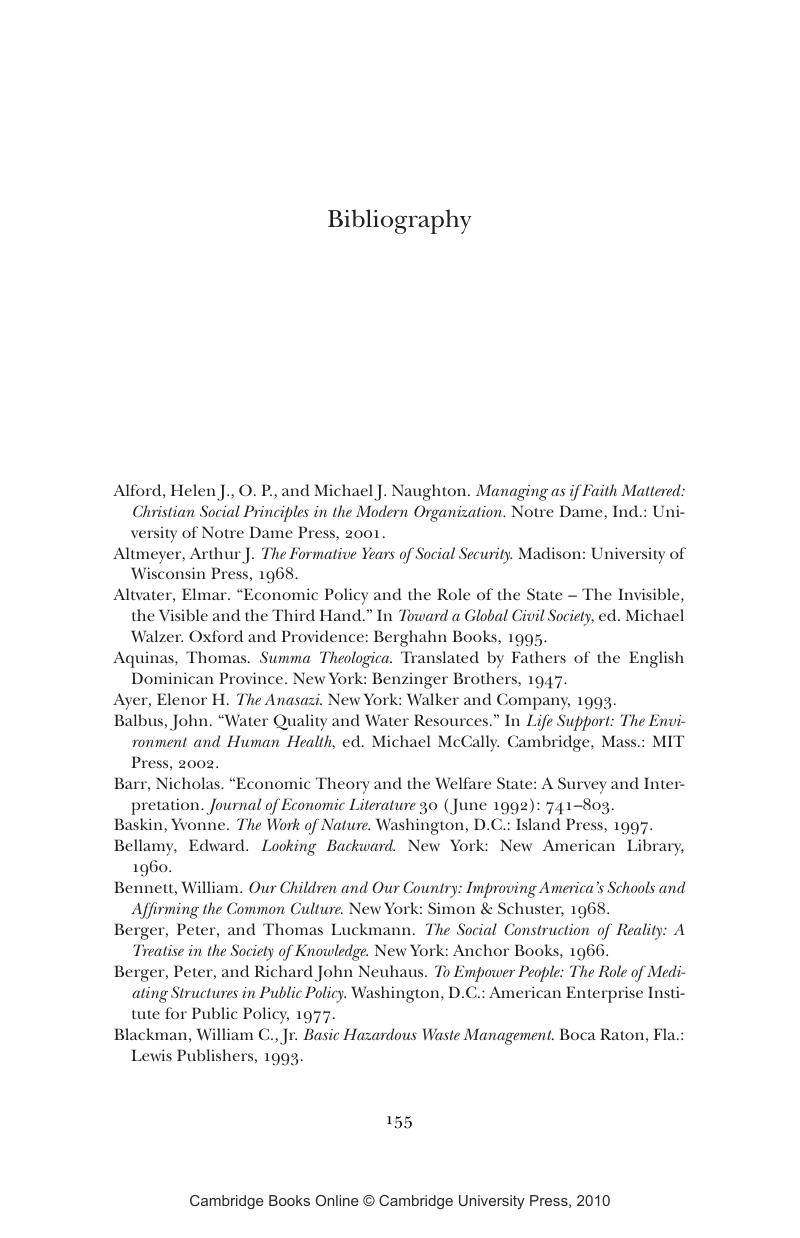Bibliography
Published online by Cambridge University Press: 05 June 2012
Summary

- Type
- Chapter
- Information
- The Moral Ecology of MarketsAssessing Claims about Markets and Justice, pp. 155 - 164Publisher: Cambridge University PressPrint publication year: 2006



